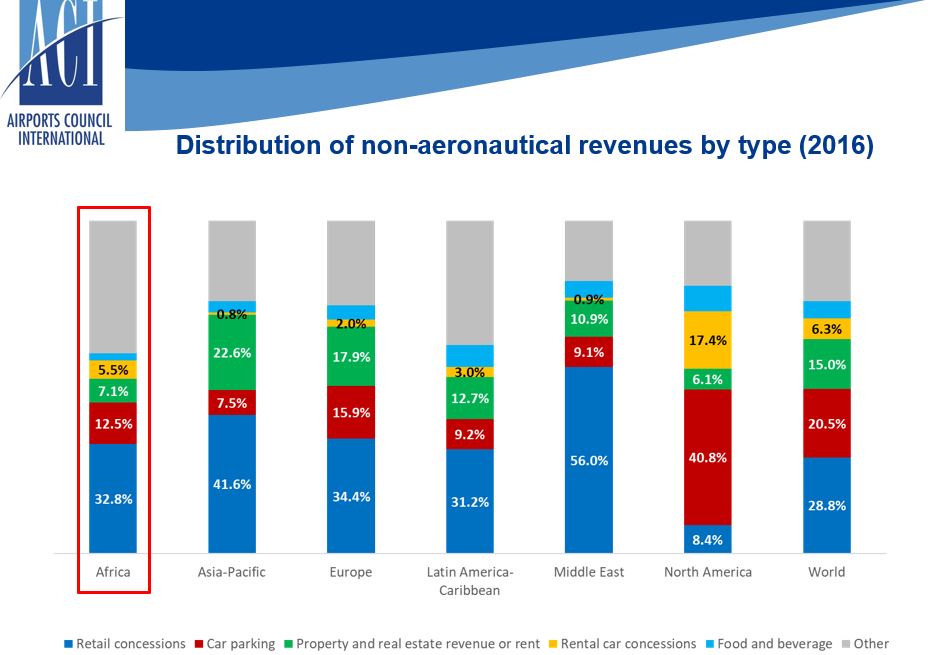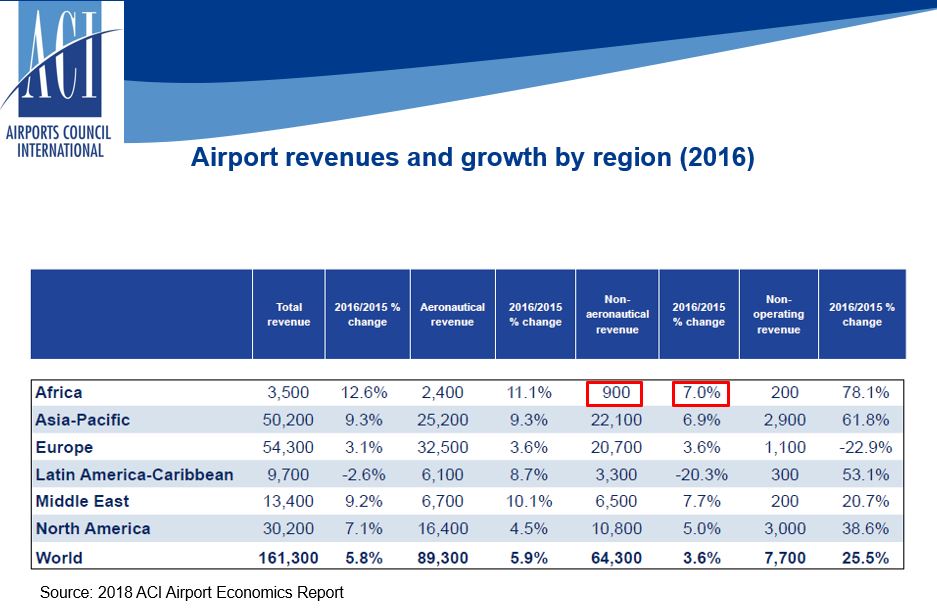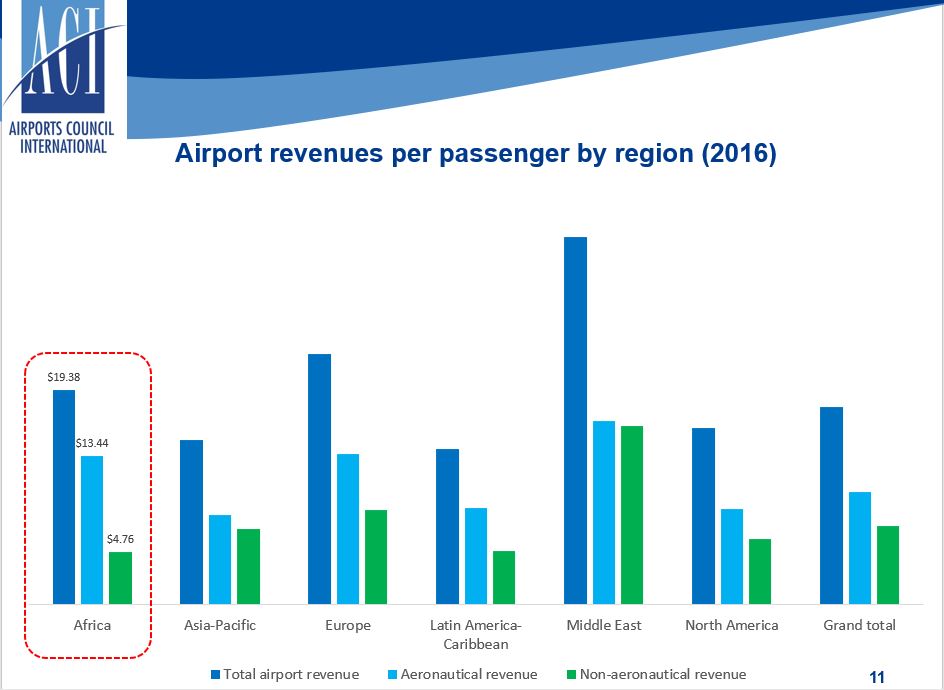Speaking at last week’s MEADFA Conference in Beirut, ACI Africa Secretary General Ali Tounsi hailed non-aeronautical revenues, retail in particular, as a critical contributor to African airport’s revenue stream and bottom line.
“Commercial revenues can be a stable source of revenue that can help recovering costs and reduce the aviation taxes for future airport development,” he said.
After experiencing a 0.4% decline in passenger traffic in 2016, African traffic recovered and grew 6.3% in 2017. However, data from the past nine years shows the area is volatile, with Africa’s compounded annual pax traffic at 4.1%. From 2017 to 2040 this compound annual growth rate (CAGR) in traffic is forecast at 3.7%, with passenger numbers expected to reach 450 million.
“In order to cope with traffic growth, airports should be allowed to generate enough revenues to finance their activities to build new infrastructure and remain competitive,” he said.
“Sustainability requires flexibility”
Looking at aeronautical revenues versus cost in Africa, ACI Africa has found that revenues from airport charges are insufficient to cover the costs for further development. Non-aeronautical revenues across Africa grew at 7% in 2016 accounting for $900m, a higher growth rate than other regions but a significantly low dollar rate. “For this reason, airports must develop partnerships with brands and retailers to increase these numbers,” Tounsi explained.
Meanwhile, non-aeronautical revenues per passenger in Africa were three times lower than aeronautical revenues in 2016.
“We must [ensure] the airport industry relies on many factors including the ability to generate diversified revenues,” said Tounsi.
Revenues from retail concessions (duty free) in Africa represented 32.8 %, or a third of the total non-aeronautical revenue, in 2016 (see top chart). Tounsi explained that as the primary source of non-aeronautical revenues in the region, retail concessions are essential as they allow airports to invest in service improvement and infrastructure development.
Tounsi stated the sustainability of African airport development requires flexibility and, most importantly, evidence-based policy making underpinning it. “Airports, airlines and retailers can form joint partnerships and initiatives in order to create an integrated retail experience and boost their non- aeronautical revenues to ensure business continuity of the industry,” he said.



